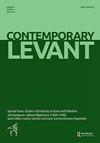Thirst revolution: practices of contestation and mobilisation in rural Egypt
Q1 Arts and Humanities
引用次数: 2
Abstract
Between 2007 and 2018, water-based protests in Egypt received extensive visibility in media headlines. These protests were first sparked by events in a village in the Nile Delta in 2007; since this demonstration, water-based protests, known as Thawrat al-‘Atash or the Thirst Revolution, have become widespread. Nevertheless, the vast majority of academic research looking at social movements in Egypt has focused on urban protests. This paper investigates the dynamics of water-focused protests in rural Egypt. We use a political ecology approach to understand ecological distribution conflicts and the perceived unjust distribution of water that was behind the social unrest. The article includes a classification of local-scale water-based protests in rural Egypt, which breaks down their causes and shows how the protest movement is embedded within biophysical, water management and agriculture development politics.饥渴革命:埃及农村的争论和动员实践
2007年至2018年间,埃及的水上抗议活动在媒体头条上引起了广泛关注。这些抗议活动最初是由2007年尼罗河三角洲一个村庄的事件引发的;自这次示威活动以来,被称为Thawrat al-'Atash或Thirst Revolution的水性抗议活动已经广泛存在。尽管如此,对埃及社会运动的绝大多数学术研究都集中在城市抗议上。本文调查了埃及农村以水为中心的抗议活动的动态。我们使用政治生态学的方法来理解生态分配冲突和社会动荡背后的水资源分配不公。这篇文章对埃及农村地方规模的水上抗议活动进行了分类,分析了抗议活动的原因,并展示了抗议运动是如何融入生物物理、水管理和农业发展政治的。
本文章由计算机程序翻译,如有差异,请以英文原文为准。
求助全文
约1分钟内获得全文
求助全文

 求助内容:
求助内容: 应助结果提醒方式:
应助结果提醒方式:


